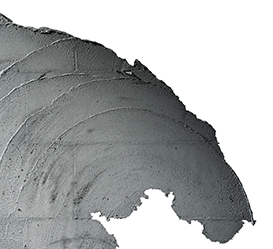2019-10-14

Initial Situation
Polymer binders (=dispersions) are required today in numerous industries and on all continents. These are used, among other things, to formulate low-odour and low-emission interior paints. Disperions are used in plasters, cements, for insulation materials, adhesives, technical textiles and carpets. Our customer is the global market leader in the production of polymer dispersions and dispersible polymer powders with sites in Europe and Asia. For a new production plant for dispersible polymer powders in South Korea with an annual capacity of 80,000 tons, Filtration Group was commissioned to supply an automatic metal edge filter (3x AF75S) for the filtration of the precursor VAE (vinyl acetate-ethylene copolymer).

Challenge
For the filtration of dispersions (batch operation), the compact inline filter
does not consume any filter material. This eliminates the need for subsequent disposal. Solid particles or agglomerates are removed from the surface of the filter medium by scraper cleaning. The patented bearing of the filter elements (AKF-system) for the prevention of high axial forces (easy cleaning process) was further developed especially for the highly viscous dispersion formulations (up to 100,000 mPas). In addition, the housings have been selected for optimum operation in a
multi-part design.

Information
Already in 2017, automatic filters from Filtration Group were
successfully used by our customer in Southern Germany as part of a capacity expansion for disperions.

Solution
The solution is a FG Automatic metal-edge filter AF 75 S with radial scraper cleaning. The compact inline filter system can be equipped with automatic cleaning. Filtration Group welded cartridge type AF 6076-XXX with high wear resistance to abrasive media, sturdy trapezoidal profile for high-viscosity media and continuous welded design. The housing is in multipart design for optimum operation.

Customer Value
Automatic filters enable automated operation of the system. The process reduces life-cycle-costs, because cleaning of screen basket filters and disposal of filter bags is not necessary (replacement of so called knot catcher). Further advantages are process reliability through efficient filter cleaning, precise separation quality (high product quality) and an optimized throughput time (increase of batch number by shortening the pumping time)